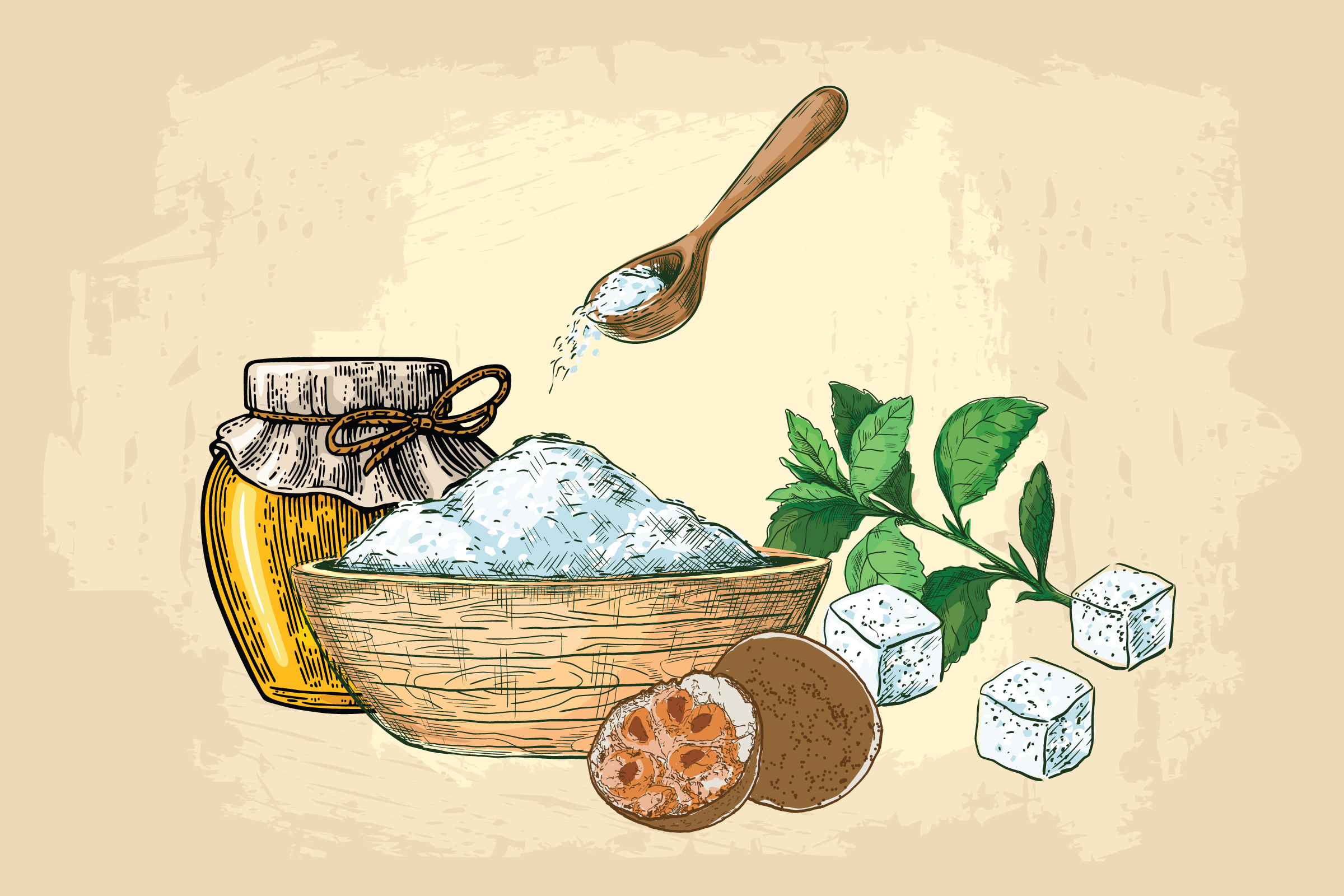Health Viewpoints
To many food makers, added sugar is the ultimate flavor enhancer. To the body, it’s jet fuel that can reprogram the brain and feed cancer, mental illness, and autoimmune disease.
Refined added sugars are a menace to public health and their artificial zero-calorie replacements come with their own problems. Fortunately, there are alternative sweeteners that can satisfy a sweet craving without undermining health.
Epoch Times health writer Flora Zhao breaks down the good sugars, the bad sugars, and the ugly consequences of our sugar addiction in her in-depth series: The Ultimate Way to Cut Out Sugar.
Here are some of the highlights of the best sweeteners you can use.
Stevia
Stevia is a cousin to the sunflower native to South America where indigenous people used it for centuries. You can grow it yourself if you like, as a friend of mine does.
Stevia has a range of uses beyond being a flavoring, and researchers are studying it for its effect in treating diabetes, controlling appetite, lowering blood pressure, and more.
“In addition to natural sweeteners and various trace elements, stevia contains terpenes, sterols, tannins, volatile acids, flavonoids, vitamins, enzymes, organic acids, and polysaccharides, all of which have biological activity,” writes Ms. Zhao.
Read her article to learn how to find good quality stevia and its other many benefits.
Monk Fruit
Monk fruit grows on a vine and belongs to the gourd family. Unlike refined sugar, this sweetener can manage blood sugar and may have anti-viral and anti-cancer properties.
“According to a review article in Frontiers in Pharmacology, monk fruit contains various nutritious compounds, including mogrosides, vitamin C, trace elements, linolenic acid, and other unsaturated fatty acids,” writes Ms. Zhao.
Monk fruit can even help repair pancreatic beta cells, according to research. This means it can help the body improve insulin production and alleviate the effects of diabetes.
Read her article to learn more about monk fruit’s many other properties—and who should avoid eating it.
Honey
Honey is a miracle food created from the essence of countless plants. It has been used as a medicine for millennia. It has counterintuitive effects on our metabolism thanks to what are known as “rare sugars.”
“Notably, 14 percent of the sugars in honey are rare sugars, many of which are formed during the maturation process of honey. These rare sugars are uncommon in nature,” writes Ms. Zhao.
Honey is a complicated mixture of many different sugars with seemingly synergistic effects.
“Compared with regular sugar, honey can lower fasting blood sugar levels, reduce bad cholesterol, and raise good cholesterol,” writes Ms. Zhao. Honey can reduce the risk of problems with our heart and metabolism, help us eat less by feeling full longer, and even out our insulin and blood sugar levels.
Ms. Zhao wrote a second article about honey to capture its effects on fighting off bacteria, viruses, and various infections. Its antibacterial properties can often be superior to antibiotics, research finds.
Ms. Zhao also covered the benefits of
maple syrup and
coconut sugar. Read
her series to sweeten up your life—and your health.








